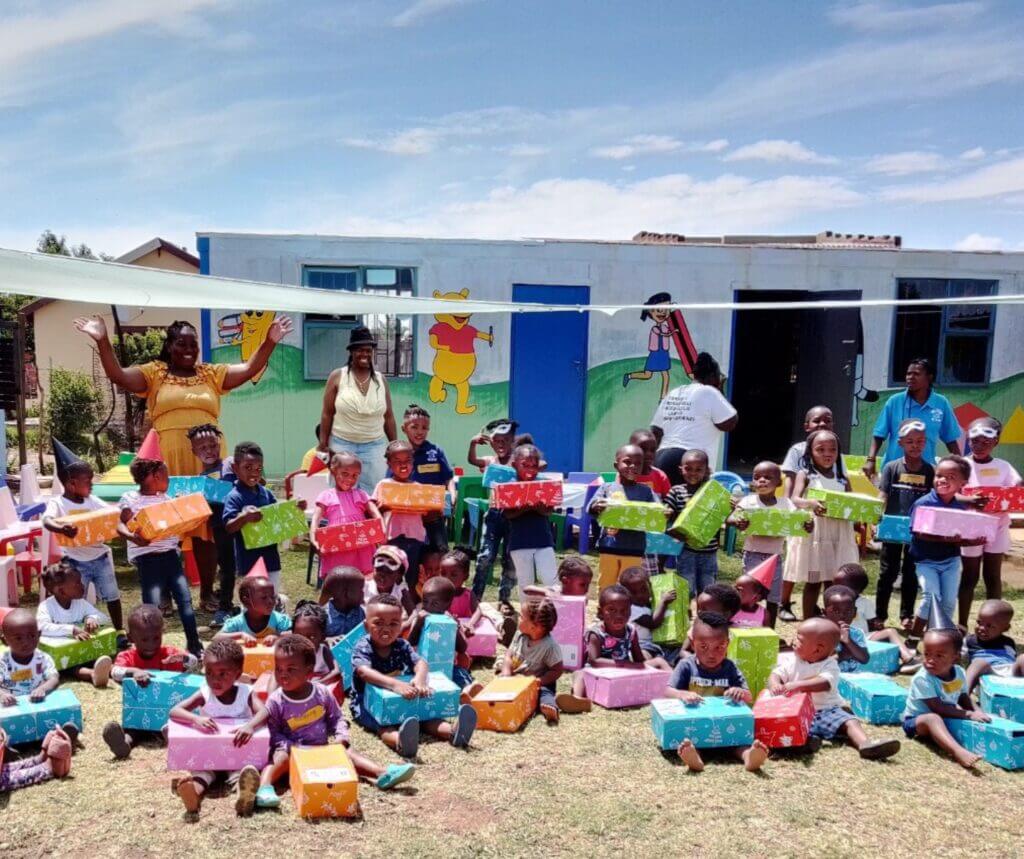As at the end of 2022, Santa Shoebox Project – which gifts donated shoeboxes containing treats and essentials to underprivileged and socially vulnerable children throughout South Africa and Namibia – has reached over 1,15 million children, equating to 1,9% of the South African population. This year alone, 75,298 children were beneficiaries – a 20% increase year on year. “While we are thrilled by these results, we believe that more should and can be done to provide a better future for our children,” says Deb Zelezniak, CEO at Santa Shoebox Programmes (SSP) which comprises three initiatives – Traditional Santa Shoebox, Virtual Santa Shoebox and Santa Shoebox Legacy.

It is for this reason that this year’s Santa Shoebox Project theme was ‘Share the Love’ with the aim of empowering beneficiaries with the opportunity to gift an item to a loved one of their own. “The rationale behind this stemmed from the realisation that underprivileged children are usually not seen as powerful. However, they have the same potential, the same value and the same full, layered life that a child of privilege does. They simply aren’t given the same opportunities.”
Building futures starts from the foundation phase
Santa Shoebox Legacy – which uses donations to permanently uplift the lives of children and their families by transforming early childhood development (ECD) centres in rural and under-served communities throughout SA – built Snethemba Educare Centre in Bhekuzulu District in Kwa-Zulu Natal (KZN). “Through a R500,000 injection from private donors, the Fund was able to build the ECD which included two classrooms, two toilets, a fully fitted kitchen, an office, playground, and a vegetable garden,” explains Samantha Massey, Project Manager at Santa Shoebox (SSB) Legacy.
Three hundred kilograms of books were also donated by Ysgol Gwynedd in North Wales, UK, towards the establishment of a library in the Bhekuzulu District.
As ECD centres would not be able to operate without caregivers, the Fund facilitated a series of training sessions with over 200 ladies in Gqeberha and the Western Cape in conjunction with Reggio Emilia Training and Duplo respectively.”
Education holds the key to unlocking equity
Combining the ‘Share the Love’ theme with education, the Santa Shoebox Programme aims to place a larger focus on bolstering ECDs and caregivers in 2023 and beyond. Zelezniak notes that this is essential as these centres are often the only way for many of the country’s children to receive quality education from a young age, helping them to compete in academia or the workplace later in life.
At the same time, she points out that ECD centres are an important source of entrepreneurship and job creation, especially for women in under-resourced communities. “However, as these schools are only provided with R17 per day per child by the Government, a lot of these women are having to reach into their own pockets to ensure that the school is fully provided for in terms of food and resources.”
“Going forward, we want to encourage those donating shoeboxes to include an extra educational item, which will equip an ECD centre for the subsequent school year,” shares Zelezniak.
Together, we can make a difference
For those wishing to improve the lives of South Africa’s underprivileged children – which make up 62% of the population – there are three ways to get involved from a personal or corporate perspective:
- Traditional Santa Shoebox: From 1 September each year, Santa Shoebox donors choose their beneficiary child/ren by name, age and gender and are given the child’s clothing size. Each personalised shoebox reaches the very child for whom it was pledged.
- Virtual Santa Shoebox: These shoeboxes are purchased online by donors and are available year-round, meeting the needs of donors who live too far from drop-off points, or who are too busy to shop. The shoeboxes are packed by the Santa Shoebox team, whereafter they are delivered to children attending far-flung rural facilities.
- Santa Shoebox Legacy: All Santa Shoebox Project operating costs are covered by corporate sponsors. Privately donated funds help to finance playgrounds, toilet renovations, the building of classrooms or training for teachers, for example.
“We would like to thank all our donors for helping us to make a difference in the lives of so many children since 2006. Considering the ongoing challenges our country is facing, we understand that this is just the beginning and look forward to driving greater impact in 2023 and beyond, and we can’t do it without you,” concludes Zelezniak.

